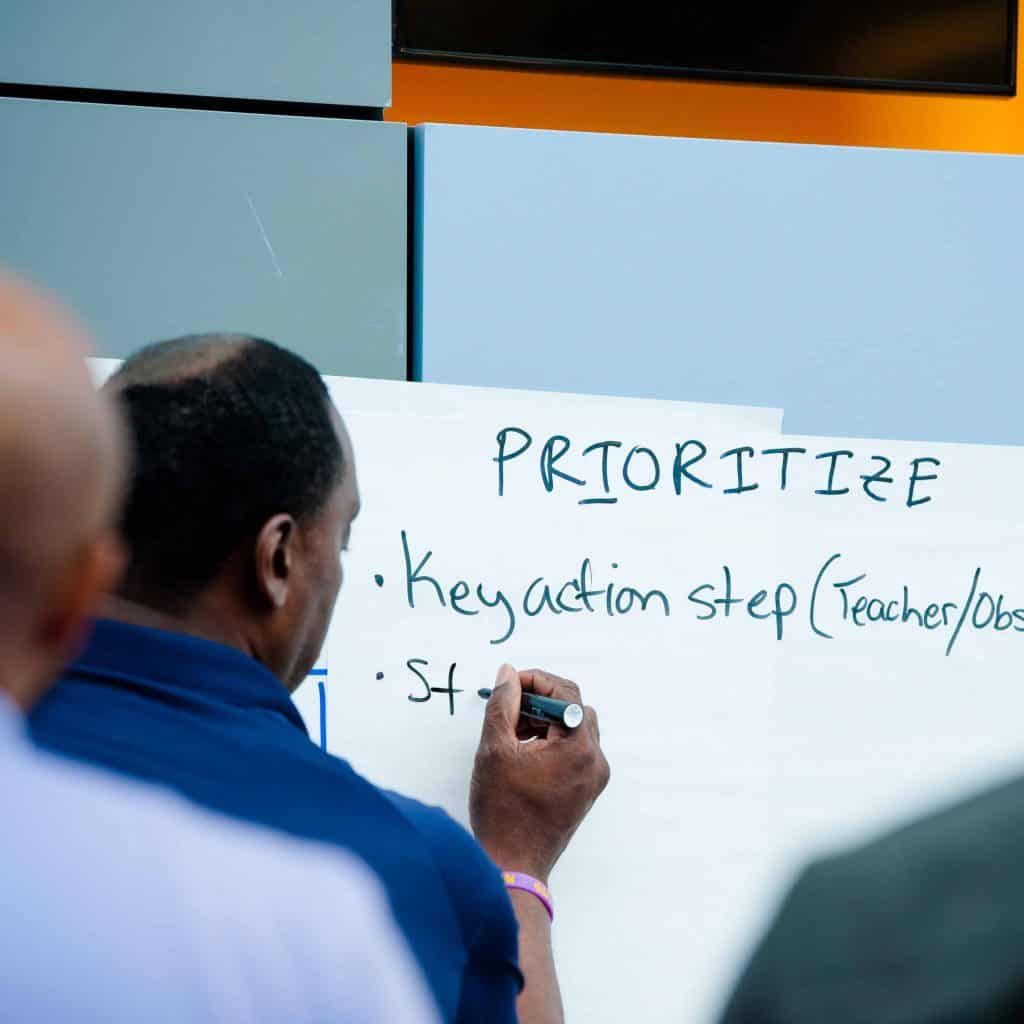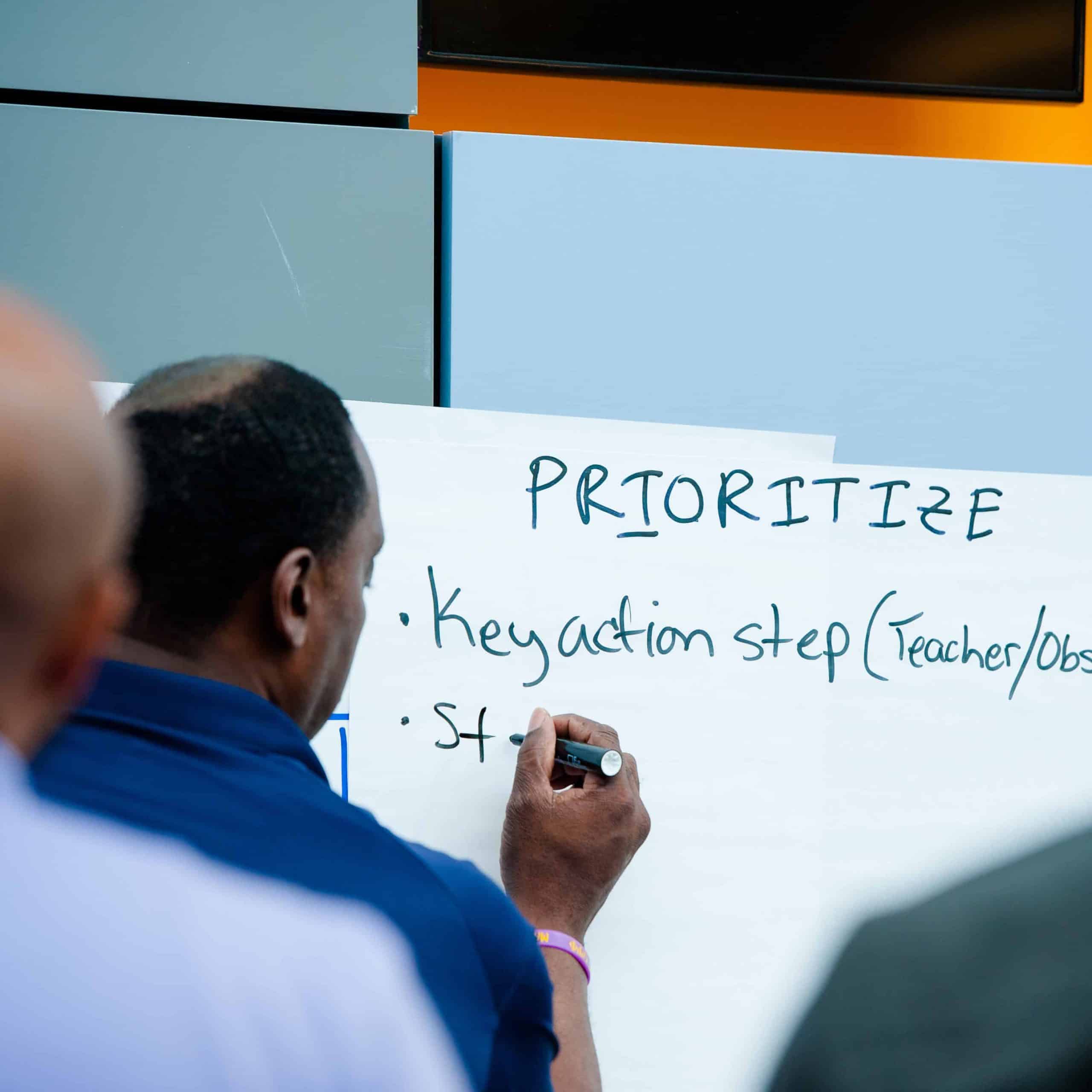
Connecting Teacher Leadership and Professional Learning
05/23/2017

How can effective teacher leadership transform professional learning? What do schools sometimes get wrong, despite their best intentions, and how can we help more schools get it right?
With the publication of Igniting the Learning Engine: How School Systems Accelerate Teacher Effectiveness and Student Growth Through ‘Connected Professional Learning’, Education Resource Strategies highlights promising practices at four leading school systems. They offer examples of what it looks like to deeply connect professional learning to the everyday work of teachers and teacher leaders and to a coordinated, system-wide strategy for student success. They also explore how these systems organize resources like people, time, and money to make this happen.
Reinventing Professional Development in Washington, D.C.
As a national organization that was first founded to develop teacher leaders, we at Leading Educators are acutely aware of both the challenge and promise of connecting such efforts to professional learning. With regular opportunities to collaborate and deepen instructional expertise, teacher leaders can play a key role in improving student learning.
At the same time, we know that teacher leaders are part of a larger connected system within schools, and their success often depends on the presence of content experts, access to high-quality instructional materials, and the necessary time to work with colleagues.
Since 2012, Leading Educators has served as a key strategic partner to DC Public Schools (DCPS), one of four systems profiled in the ERS paper. At the beginning of the partnership, DCPS had just received a federal grant through the Teacher Incentive Fund to increase opportunities for teacher leadership, building on the district’s previous work on teacher evaluation and compensation. Leading Educators partnered with DCPS to provide technical assistance, drawing on our long-standing work with teacher leadership programs in New Orleans and Kansas City, Missouri.
Getting Started
Leading Educators worked with DCPS to launch the Teacher Leadership Innovation (TLI) program at a pilot group of seven schools. In the early years of the program, schools had great latitude in creating teacher leader roles. This meant that school leaders were highly engaged in the process but also that roles varied widely.
- While these roles added capacity for school leaders, they were not exclusively focused on examining student work or building teacher skills.
- For many teacher leaders who were new to leadership positions, coaching their former peers created challenging dynamics.
- Additionally, some schools struggled to protect release time that had been allocated for teacher leader functions when staff turnover occurred and emergencies arose.
As TLI expanded, structures, systems, and training were gradually put in place to address many of the lessons learned from the first cohort of schools. Over time, new teacher leader roles became more narrowly focused on what the paper refers to as “content-focused, expert-led collaboration” instead of tackling both administrative and learning functions. This ensured that principals aligned the roles to the key instructional priorities of their schools.
To support TLI participants’ transition into new leadership roles, the program content focused heavily on developing both hard and soft leadership skills. DCPS also focused on helping new teacher leaders develop adult leadership skills. Leading Educators partnered with the district to provide sessions focused on relationship management, addressing topics such as difficult conversations, team dynamics, influence with and without authority, and conversations about difference. This content translated leadership best practices into normed processes and tools.
Scaling Systems Change
In addition, Leading Educators worked with DCPS to create systems and structures to support principals in becoming stronger distributive leaders. These included how to strongly connect school priorities to teacher leadership roles, the School Theory of Action, and how to regularly and rigorously analyze formative leadership, teacher practice, and student data, the Quarterly Data Review. Maggie Slye, the Managing Director for Leading Educators’ LEAP team, explains how these structures function in practice:
The Theory of Action serves to anchor the school in its priorities, not just for students and teachers, but also anchors the leadership team in the commitments they’ve made to teachers. By establishing these priorities and commitments collaboratively, the Theory of Action supports alignment and a shared understanding of priorities.
Each quarter, a Leading Educators Leadership Coach leads the leadership team to analyze student and/or teacher data to assess what has been accomplished and what may need to be revised. This data cycle – setting goals, assessing progress, and course-correcting – is something many schools do for students. It’s far less frequent to see schools doing this type of analysis for teacher goals and for leadership goals. Our schools emerge from Quarterly Data Reviews not only clearer on the next quarter’s goals for students, but also goals for teacher instructional practice and the leader actions they will take to support teacher development in those instructional practices.”
Finally, the DCPS central office team, in partnership with school leaders, began to research, create, and share innovative scheduling approaches that would create more release time cost neutrally. With coaching, school leadership teams developed contingency plans so that they could provide sufficient time for productive collaboration even when unforeseen challenges emerged.
Impact
Leading Educators has been honored to learn alongside outstanding DCPS school and central office leaders. Principal Art Mola from Bancroft Elementary shares:
It is hard to think of Bancroft and Leading Educators as a partnership. The amazing team at LE has become an intricate part of the Bancroft family in such a way that we do not view them as an external entity, rather a member of our leadership team.
And as a result, Bancroft LEAP Leads continue to celebrate the amazing job our LE coach has done with each one of them, and with the whole team. I can confidently say that the quality of our Quarterly Data Reviews has improved exponentially, as we are firmly grounded in our commitment to the Theory of Action, and are already looking forward to next year as we get ready to roll out a more improved version than even now.”
These efforts laid a strong foundation for LEAP. With LEAP, DCPS is leveraging distributive leadership to improve instructional practice in content-specific and job-embedded teams. LEAP has ignited the learning engine by empowering principals and teacher leaders with the structures and tools to drive continuous improvement.








